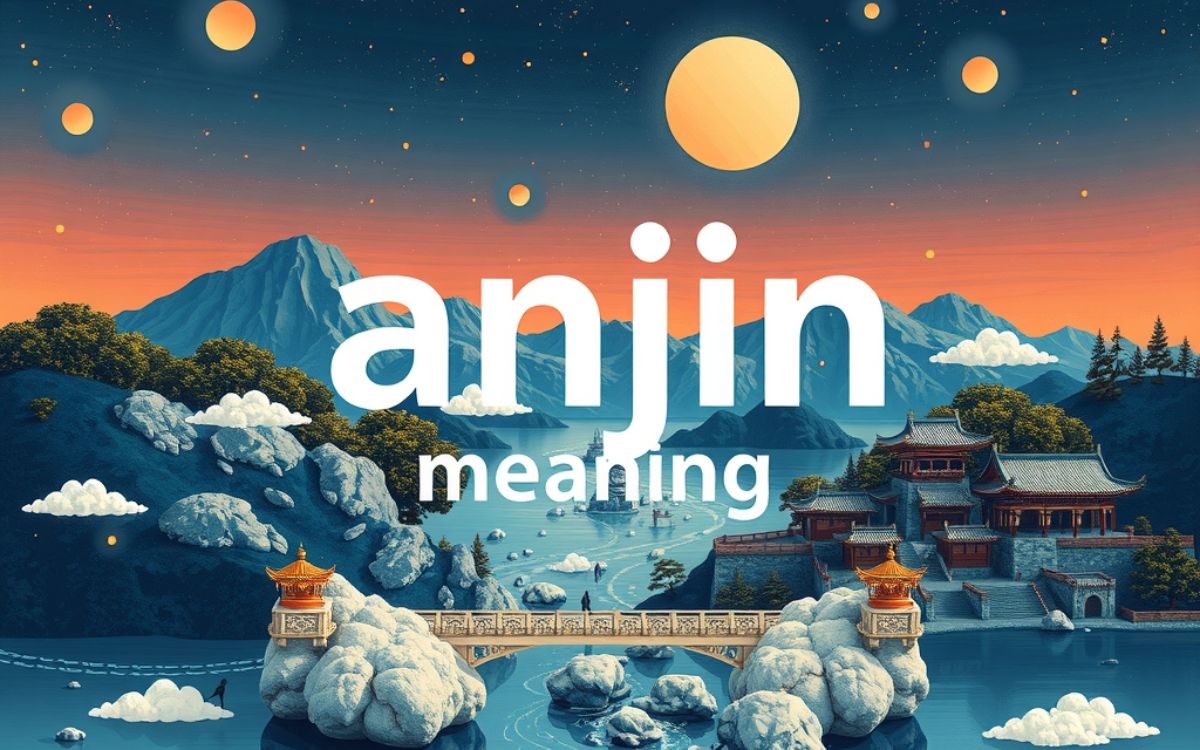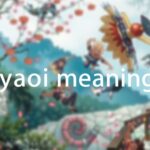If you’ve been watching Shōgun or stumbled across discussions online, chances are you’ve heard the term Anjin pop up more than once. It sounds mysterious, almost like a title loaded with meaning, and that’s exactly what it is.
At first glance, “Anjin” might seem like just a nickname for the main character, but in reality, it’s tied to real history and the role of foreign navigators in Japan’s past. The word itself carries respect, authority, and a sense of identity that goes far beyond the show.
In this article, you’ll learn the true Anjin meaning, how it fits into Japanese culture, and why it became such a powerful symbol in Shōgun. We’ll also answer popular questions about the characters, history, and the series itself so you get the full picture.
What Does Anjin Mean?
In Japanese, Anjin (安針) literally means “pilot” or “navigator.” The term was historically used for people who guided ships safely through seas and harbors. It wasn’t just a job title—it carried respect, because navigation was a highly skilled profession during Japan’s early encounters with Europeans.
When used in Shōgun, the name highlights the lead character’s role as both a sailor and an outsider navigating an unfamiliar world.
Is Shōgun a True Story?
Yes, but with a twist. James Clavell’s novel Shōgun is inspired by real events but dramatized for storytelling. The main character, John Blackthorn, is based on William Adams, an English navigator who arrived in Japan in 1600.
Adams became a trusted advisor to Tokugawa Ieyasu, the warlord who later unified Japan. While the show changes names and details, its foundation comes from true history.
What Does Anjin Mean in Shōgun?
In the series, “Anjin” is not just a translation—it becomes Blackthorn’s identity. He is called Anjin-san, meaning “Mr. Pilot.” This nickname shows how the Japanese respected his maritime knowledge, even while viewing him as a foreigner.
It’s symbolic too: Blackthorn isn’t just navigating ships, he’s navigating cultural barriers, politics, and survival in a land completely foreign to him.
Does Anjin Mean Barbarian?
No, it doesn’t. A common mistake is to confuse “Anjin” with terms like Nanban (南蛮), which means “southern barbarian” and was often used for Europeans.
While foreigners were often labeled “barbarians” during that era, Anjin itself is a professional title, not an insult. In fact, it shows respect for his role as a skilled navigator.
Why is Blackthorn Called Anjin?
Blackthorn earns the name because he pilots ships and proves his worth through his knowledge of navigation. In a culture where rank and titles mattered deeply, this label set him apart from being just another outsider.
The Japanese characters saw him not only as a foreigner but also as someone with valuable expertise. Calling him “Anjin” acknowledged both.
What is Hatamoto in Shōgun?
A Hatamoto was a direct retainer of the shogun, part of the samurai class who served the ruler personally. They were elite warriors with privileges and responsibilities in the Tokugawa period.
In Shōgun, the concept of Hatamoto shows the rigid hierarchy of feudal Japan, where loyalty and rank decided a person’s fate.
Who Sleeps with the Anjin in Shōgun?
One of the most talked-about parts of the series is Blackthorn’s relationship with Mariko. Their connection isn’t just physical—it’s emotional, political, and symbolic.
This romance reflects cultural clashes and personal struggles. It also deepens Blackthorn’s transformation from an outsider to someone tied emotionally to Japan.
Who Was Mariko in Shōgun?
Mariko is one of the most important characters in the story. She is noble, intelligent, and torn between her duty and her love for Blackthorn.
Her story arc adds depth to the show, showing how personal loyalty, honor, and sacrifice defined life in feudal Japan.
Will There Be a Season 2 of Shōgun?
As of now, Shōgun is presented as a limited series. FX and Hulu have described it as a complete story with no official season 2 confirmed.
However, given its popularity and critical success, fans continue to hope for more. Industry speculation suggests it could return, but nothing has been announced.
Conclusion
The word Anjin goes far beyond a simple translation. It embodies the idea of a navigator—someone guiding ships through dangerous seas while also symbolizing a foreigner finding his place in an unfamiliar land. In Shōgun, it becomes a name that defines Blackthorn’s role and the respect he earns despite cultural barriers.
By understanding the true meaning of Anjin, you not only grasp a key detail of the series but also connect with a fascinating piece of Japanese history. Whether you’re a fan of the show or just curious about the term, knowing its origins adds depth, context, and a richer appreciation for both the story and the culture behind it.
FAQs
Is Shōgun a true story?
Shōgun is inspired by real history, based on English navigator William Adams’ life in Japan, though dramatized with fictionalized characters and events.
What does Anjin mean in Shōgun?
In Shōgun, Anjin means “pilot” or “navigator.” It’s the respectful title given to Blackthorn, symbolizing his role guiding ships and navigating cultural challenges.
Does Anjin mean barbarian?
No. Anjin means “navigator,” not “barbarian.” Foreigners were sometimes called Nanban (“southern barbarians”), but Anjin specifically shows respect for maritime skill and expertise.
Why is Blackthorn called Anjin?
Blackthorn earns the name Anjin because of his navigation skills. The Japanese acknowledge his value and identify him as a respected ship pilot.
What is hatamoto in Shōgun?
A Hatamoto was a direct retainer of the shogun, belonging to the samurai elite, serving loyally and enjoying prestige in feudal Japanese society.
Who sleeps with the Anjin in Shōgun?
Blackthorn develops a romantic relationship with Mariko, a noblewoman, which intertwines duty, cultural conflict, and deep emotional connection in the Shōgun storyline.
Who was Mariko in Shōgun?
Mariko is a courageous, noble woman who becomes Blackthorn’s lover. Her character represents loyalty, sacrifice, and emotional strength in the unfolding Shōgun story.
Will there be a season 2 of Shōgun?
As of now, Shōgun is a limited series. No official season 2 exists, though its popularity leaves room for future possibilities.

Welcome to Bloomnis.com! I am the admin, here to bring you the best jokes and laughter. My goal is to make your day brighter with funny content. Enjoy jokes, puns, and humor anytime. Keep smiling and have fun with us. Laughter is the best medicine!
















